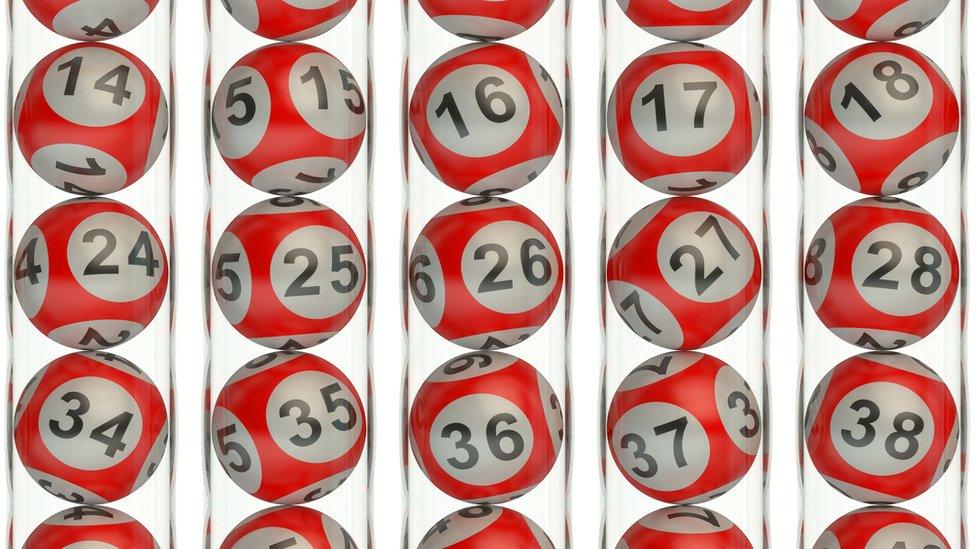Woman loses latest stage of National Lottery '£10 or £1m' claim
- Published

Joan Parker-Grennan has sued Camelot, claiming the Lotto operator is "bound" to pay her a £1m prize
A woman has lost the latest stage of a High Court battle over whether she is entitled to win a National Lottery prize of £10 or £1m.
Joan Parker-Grennan, from Boston, Lincolnshire, has sued Camelot, claiming the Lotto operator is "bound" to pay her a £1m prize.
It follows a "technical issue" during an online Instant Win game Mrs Parker-Grennan played in 2015.
Camelot disputes her claim and says it is liable to pay only £10.
On Tuesday, Mr Justice Jay, who has overseen the latest stage of the dispute at a hearing in London, rejected Mrs Parker-Grennan's application for a summary judgement in her favour, meaning the case could now go to a trial.
Lawyers previously told the judge that Mrs Parker-Grennan had purchased a £5 Instant Win game ticket on 25 August 2015.
They said the premise of the game was that if a number in the "your numbers" section of the screen matched one in the winning numbers section, the two matching numbers would turn white.
Camelot says that "at the point" Mrs Parker-Grennan bought her ticket, its computer system predetermined her prize to be £10.
But the judge was told that between August 25-26 there had been a "technical issue" which could result in "different graphical animations" being displayed on some players' screens.
Mrs Parker-Grennan received a message saying: "Congratulations, you have won £10."
But the judge heard that two other matching numbers - with a designated prize of £1m - also appeared as a result of the technical issue.
Factual dispute
Mrs Parker-Grennan, who was not at the High Court hearing, argued that there should be summary judgment in her favour because Camelot could not win at a trial.
But lawyers representing Camelot said Mrs Parker-Grennan's summary judgment application should be dismissed as there was a "real prospect" of Camelot winning.
Barrister Philip Hinks, who led Camelot's legal team, argued that the operator was liable only to pay the "outcome of the ticket as predetermined" by Camelot's computer system.
That was £10, not £1m, he said.
Mr Hinks said there was also a "substantial" factual dispute concerning what outcome had been predetermined by Camelot's computer system.
Barrister James Couser, who represented Mrs Parker-Grennan, has said there was "no real prospect of the claim being successfully defended".

Follow BBC East Yorkshire and Lincolnshire on Facebook, external, Twitter, external, and Instagram, external. Send your story ideas to yorkslincs.news@bbc.co.uk, external.
Related topics
- Published29 March 2023